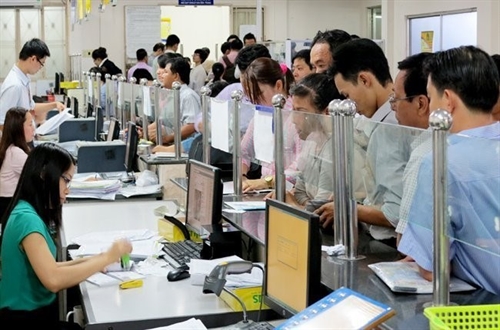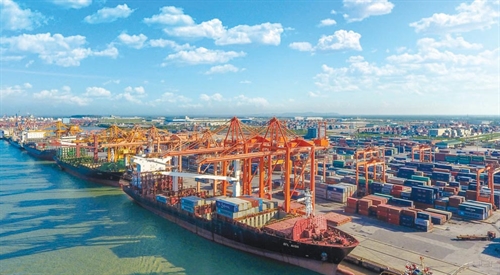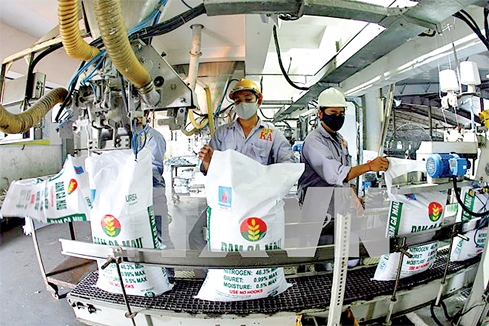To minimize risks of using cryptocurrencies for crimes, such as money laundering, terrorist financing, illegal transfer of money, tax evasion and trade fraud, the Prime Minister on April 11 issued Directive 10/CT-TTg to enhance the management of activities related to Bitcoin and other cryptocurrencies.
Accordingly, credit institutions and organizations providing intermediary payment services have to refrain from performing transactions related to cryptocurrencies and review and promptly report on suspicious transactions related to cryptocurrencies.
Public companies, securities companies, fund management companies and securities investment funds are also required to refrain from conducting listing, trading or brokering activities related to cryptocurrencies in contravention of law and comply with the law on anti-money laundering.
They also have to study international practice and experience to propose measures for handling capital mobilization through the initial coin offering (ICO), and coordinate with related agencies in restricting the import of equipment and machines used for cryptocurrency digging.
 |
| The Prime Minister issued Directive 10/CT-TTg to enhance the management of activities related to Bitcoin and other cryptocurrencies__Photo: Internet |
The Ministry of Public Security is tasked to investigate, detect, prevent and promptly handle violations related to capital mobilization, multilevel marketing and internet phishing using cryptocurrencies as well as the impersonation in cryptocurrency investment and trading to appropriate others’ assets.
The Prime Minister also requests the Ministry Industry and Trade to promptly handle acts of illegally using cryptocurrencies as a means of payment on e-commerce websites and apps.
The Ministry of Justice will have to complete the legal framework on management and handling of cryptocurrencies and assets, and coordinate with the Ministry of Finance in studying international practice and experience to propose measures to inhibit the capital mobilization through ICO.
The Ministry of Information and Communications will direct information and press agencies to strengthen communication about risks, dangers and consequences of participation in cryptocurrency trading and investment and request them to refrain from providing information causing anxiety about cryptocurrencies.
Provincial-level People’s Committees will provide information and make warnings in their localities to increase local people’s awareness about the risks and consequences of cryptocurrency trading and investment.
Following the PM’s instruction, the State Bank Governor on April 13 inked Directive 02/CT-NHNN on measures to further control cryptocurrency-related trading and activities.
Under the directive, credit institutions and organizations providing intermediary payment services are not allowed to conduct cross-border transactions related to cryptocurrencies which may be abused for money laundering, terrorist financing, tax evasion or fraud.
In addition, they are required to intensify inspections and promptly report on suspicious transactions related to cryptocurrencies as well as those engaged in cryptocurrency trading.
Meanwhile, the State Bank’s units will have to coordinate with related ministries and sectors in formulating a legal framework and devising measures to handle illegal acts of using the banking and payment systems for cryptocurrency trading, exchange or use of cryptocurrencies as an illegal payment instrument.
The central bank’s branches nationwide are tasked to provide information about the Government’s and SBV’s policies and regulations on cryptocurrencies to credit institutions and organizations providing intermediary payment services.
Credit institutions, foreign bank branches and intermediary payment service providers are required to work out their own plans to implement the measures specified in the Directive to control cryptocurrencies and report results to the State Bank’s Payment Department before June 30.- (VLLF)









